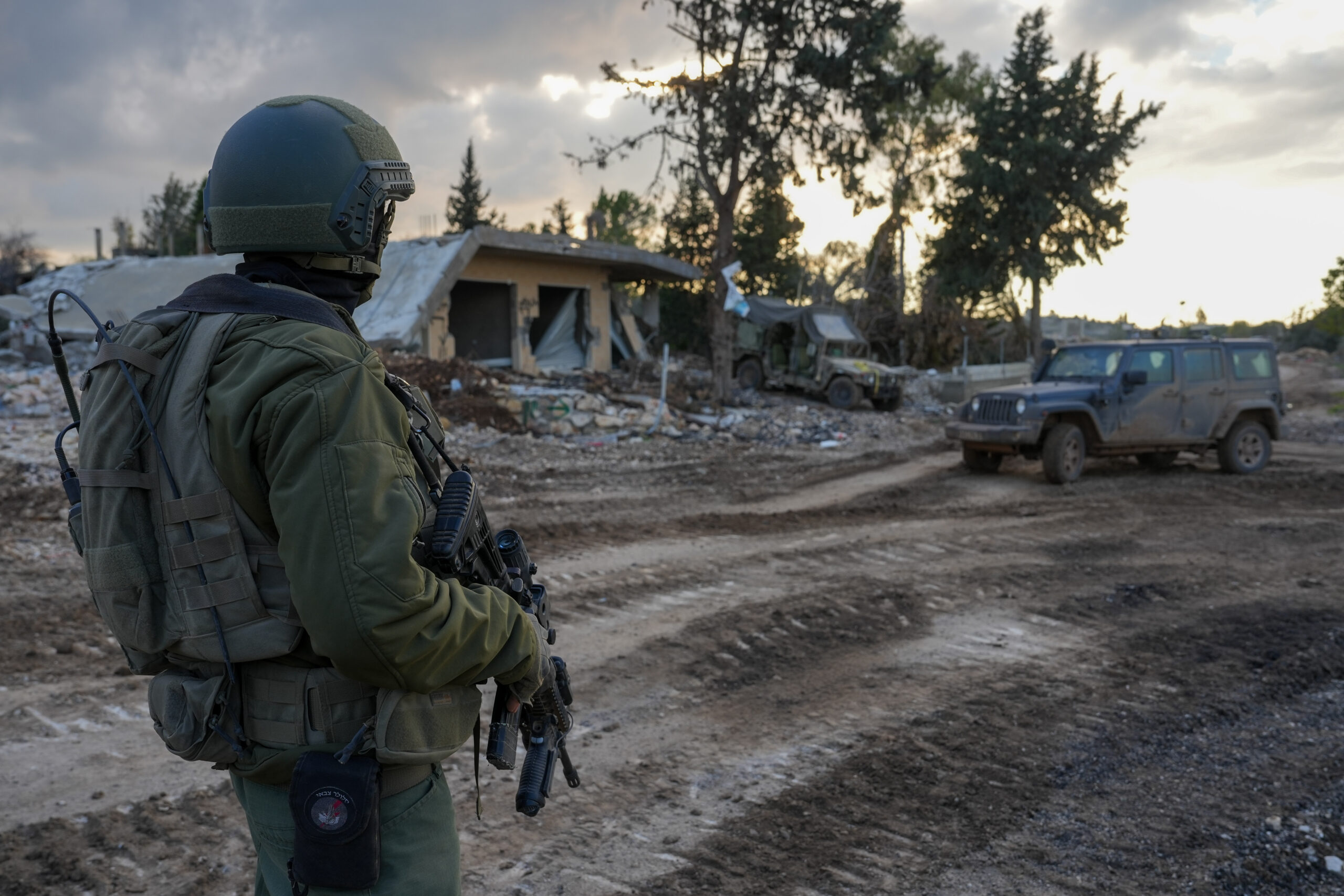Shlomo was having Shabbat dinner with his family when the sirens started on October 7th. Within hours, he was called into active duty. First to the northern border, then Gaza, then back north again. For 11 months, he didn’t stop. “I couldn’t go home,” he says. “The war was still going. I wasn’t ready to leave.”
At one point, while switching shifts on guard duty, Shlomo spotted a drone coming toward him. It exploded just a meter away. He missed shelter by inches. His hearing was damaged. His ear was torn. But at first, he thought he was fine. “I checked myself. I looked okay. I treated my ear and thought I’d move on.”
But when his unit was called up again weeks later, something inside him cracked.
“There were sirens. Explosions. I couldn’t control myself. My body started shaking. I couldn’t breathe. My chest was burning. I told them, ‘I can’t go up. I don’t know what’s going on with me.’”
That was the first time he heard the words: Post-Traumatic Stress Disorder. PTSD.
For many Israelis, the war didn’t end when the rockets stopped. It moved inward—into their sleep, their relationships, their bodies. Into the daily rhythm of life. And that’s exactly where Shlomo found himself.
“I don’t have a routine anymore,” he says. “I can plan something, but until a minute before, I don’t know if I’ll actually do it.”
He explains that PTSD shows up differently in everyone. Some people can’t sleep. Others sleep too much. Some have panic attacks in traffic or supermarkets. For him, it’s unpredictable. “You lose the ability to control your life. One day, I’m talking to people. The next, I don’t want anyone near me.”
When his twin daughters were born four months ago, Shlomo found himself holding them, but feeling nothing. “I didn’t feel connected. I did what I had to—feed them, hold them. But inside, I felt empty.” His first daughter had been different. With her, he says, he couldn’t stop holding her. “But now? I was just going through the motions.”
He speaks slowly and with heartbreaking clarity: “My soul is injured.”
Since returning home, Shlomo hasn’t gone to weddings. He avoids social gatherings. He can’t walk into large supermarkets without anxiety setting in. “My wife gave birth, and a week later she was out shopping. I can’t do that. I get overwhelmed. I have to leave.”
He describes entire days when he can’t lift his arms off the couch. “I tell my wife, ‘I can’t move. My whole body hurts.’ It’s not just in your head. PTSD is physical, too.”
But Shlomo is fighting back. Three times a week, he travels to a therapeutic farm for PTSD recovery. There, he rides horses. He sits in groups with other soldiers. They talk, laugh, cry—sometimes all at once.
“I came here and thought I was crazy. But when I heard other people talking about the same things I was feeling—I realized, I’m not alone.”
The farm is part of a broader effort to respond to what many are now calling a national mental health emergency in Israel. Since October 7, PTSD has swept across the country—soldiers, parents, children, elderly survivors. Shlomo says what many fear to admit: “I think more than 90% of Israelis have some PTSD. Not everyone knows it, not everyone is diagnosed. But we live in a country where everyone has seen something.”
What makes PTSD so painful, he says, is how invisible it is. “We call it the ‘clear injury.’ People look at you and say, ‘He has two arms, two legs—he’s fine.’ But inside? Inside, you feel like you’ve lost everything.”
There’s no quick fix. Some days are better than others. “This week’s been good,” he tells me. “I’m going out more, seeing people. But next week? Who knows.”
He’s hoping to return to work soon. Not just because of money—but because it’s a goal. “It’s hard. But I believe in hard work. Every small thing I do—I tell myself, that’s a win. Now take the next step.”
When I ask him what he wants people—especially outside Israel—to understand about PTSD, he doesn’t hesitate. “Just take a second before you judge someone. That guy in traffic screaming? Maybe he’s been through something. That person who cut you in line? Maybe they’re on the edge. You don’t have to know what someone’s going through to give them grace.”
And then he adds: “We’re all fighting something. Sometimes, the hardest battles are the ones no one sees.”
Shlomo survived the war. But the war followed him home. And right now, he—and thousands like him—are still trying to rebuild their lives one fragile, courageous day at a time.
Your donation to Israel365’s Fight PTSD in Israel campaign provides therapy, relief, and a path forward for trauma survivors like Shlomo.
Help him keep going. Help him heal.





